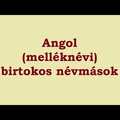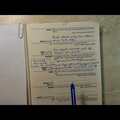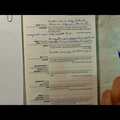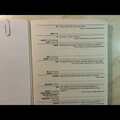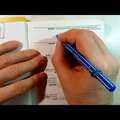The verb ‘be’ in different tenses
PRESENT SIMPLE - am, I’m (not), aren’t I?, is, ‘s, isn’t, are, ‘re, aren’t)
I am at home. = I’m at home.
I am not tired. = I’m not tired.
Am I early? (But: I am early, aren’t I?)
Where am I?
He is at work. = He’s at work.
He is not tall. = He’s not tall. = He isn’t tall.
Is he your boss?
Who is your best friend? = Who’s your best friend?
They are on the table. = They’re on the table.
They are not at home. = They aren’t at home.
Are they heavy?
Why are they in the car?
PAST SIMPLE – was, wasn’t, were, weren’t
I was at home.
I wasn’t at work.
Was he the first?
Who was the second?
The boxes were in the kitchen.
The boxes weren’t in the car.
Were you at home yesterday?
Why were you at home yesterday?
“BE GOING TO I.” – I am going to be, I’m going to be, I’m not going to be; He is going to be, he’s going to be, he is not going to be, he isn’t going to be; you are going to be, you’re going to be, you are not going to be, you aren’t going to be
I’m going to be at home all weekend and relax – I have been working all week!
I’m not going to be excited by anything they will say at the lecture.
He is going to be away when his family wants to visit him.
They’re going to be around so it won’t be long and they will be here.
FUTURE SIMPLE – will be, will not be, won’t be
I will be late. = I’ll be late.
I will not be at work at the weekend. = I won’t be work at the weekend.
Will you be at home on Sunday?
When will you be at home? = When’ll you be at home?
PRESENT CONTINUOUS – I am being, is being, are being
I can’t speak to you, darling, - I am being interviewed at the moment.
Calm down, he is just being stupid.
Why are you always being your own worst enemy when you get more money than usual?
PAST CONTINUOUS – was being, was not being, wasn’t being, were being, were not being, weren’t being
I was being half the person I used to be every time I met a beautiful girl.
The criminal was being watched by the police when he met some well-known politicans.
The line was being engaged when they were trying to call him.
The players were being good at table tennis while they were trained by the famous coach.
FUTURE CONTINUOUS – will be being, ‘ll be being, will not be being, won’t be being
When you ask hime to come out with us, he will be being bored with the task you have given him – I’m sure he will agree to have a break.
PRESENT PERFECT – have been, ‘ve been, has been, ‘s been, haven’t been, hasn’t been
I have been here for an hour. = I’ve been here for an hour.
He has been ill since last week. = He’s been ill since last week.
I haven’t been to the cinema for six months.
He hasn’t been to Italy since last summer.
Have you been sent a letter from abroad lately?
She looks very tired. Has she been in the workshop all day?
Where have you been all afternoon?
Why has she been so happy since she came home from work?
PAST PERFECT – had been, ‘d been, had not been, hadn’t been
Before I started working as a writer, I had been a secretary in a very boring office.
He hadn’t been asked when his family spent all his money.
Had you been at home for an hour when they arrived from the party?
How long had they been at the firm when it closed up?
Future perfect – will have been, ‘ll have been, will not have been, won’t have been
When it happens I’ll have been in bed and sleeping for several hours so I won’t be interested.
He will have been an employee for years at an international company when he finally gets a certiciation about his language knowledge.


